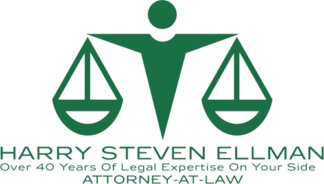Best Commercial Real Estate Lawyers in Farmington Hills
Share your needs with us, get contacted by law firms.
Free. Takes 2 min.
Free Guide to Hiring a Real Estate Lawyer
List of the best lawyers in Farmington Hills, United States
About Commercial Real Estate Law in Farmington Hills, United States
Commercial real estate law in Farmington Hills, United States covers the legal aspects of buying, selling, leasing, and developing commercial properties. This can include office buildings, retail spaces, industrial properties, and more. It is important to understand the laws and regulations governing commercial real estate transactions to ensure compliance and protect your interests.
Why You May Need a Lawyer
You may need a lawyer for commercial real estate transactions in Farmington Hills if you are buying or selling a property, negotiating a lease agreement, dealing with zoning issues, facing property disputes, or seeking advice on property development. A lawyer can help you navigate complex legal issues, draft and review contracts, resolve disputes, and provide guidance on complex legal matters.
Local Laws Overview
In Farmington Hills, United States, commercial real estate law is governed by a combination of federal, state, and local laws. Some key aspects to consider include zoning regulations, property tax laws, landlord-tenant laws, environmental regulations, and building codes. It is crucial to understand these laws to ensure smooth transactions and compliance with legal requirements.
Frequently Asked Questions
1. What is the difference between commercial and residential real estate?
Commercial real estate refers to properties used for business purposes, such as office buildings, retail spaces, and industrial properties. Residential real estate, on the other hand, includes properties used for living, such as single-family homes, apartments, and condominiums.
2. Do I need a lawyer for a commercial real estate transaction?
While not required by law, it is highly recommended to hire a lawyer for commercial real estate transactions to ensure legal compliance, protect your interests, and navigate complex issues.
3. How can a lawyer help with a commercial lease agreement?
A lawyer can review and negotiate lease agreements, ensure compliance with legal requirements, and protect your interests in case of disputes or breaches of contract.
4. What are common issues in commercial real estate transactions?
Common issues in commercial real estate transactions include zoning problems, environmental issues, title disputes, financing challenges, contract breaches, and lease disagreements.
5. What is the role of due diligence in commercial real estate transactions?
Due diligence involves investigating the property, reviewing contracts, assessing risks, and verifying information to ensure a smooth and successful transaction.
6. How are property taxes calculated for commercial real estate?
Property taxes for commercial real estate are based on the assessed value of the property and the tax rate set by the local government. It is important to understand property tax laws to avoid overpaying.
7. What is the process for resolving a commercial real estate dispute?
Commercial real estate disputes can be resolved through negotiation, mediation, arbitration, or litigation. A lawyer can help you choose the best course of action based on your specific situation.
8. How can I ensure compliance with zoning regulations for my commercial property?
To ensure compliance with zoning regulations, you should consult with a lawyer, obtain necessary permits, conduct zoning research, and adhere to local zoning laws and ordinances.
9. What legal issues should I consider when buying a commercial property?
When buying a commercial property, you should consider title issues, environmental concerns, zoning restrictions, financing options, lease agreements, and potential liabilities. A lawyer can help you navigate these legal issues.
10. How can I protect my interests in a commercial real estate transaction?
To protect your interests in a commercial real estate transaction, you should work with a qualified lawyer, conduct thorough due diligence, review contracts carefully, seek legal advice when needed, and ensure compliance with laws and regulations.
Additional Resources
For more information on commercial real estate law in Farmington Hills, United States, you can contact the local bar association, real estate commission, or commercial real estate organizations. You can also consult legal directories, online resources, and government websites for valuable information and guidance.
Next Steps
If you need legal assistance in commercial real estate in Farmington Hills, United States, it is advisable to contact a qualified real estate lawyer who specializes in commercial transactions. A lawyer can provide you with legal advice, representation, and guidance throughout the process to ensure a successful and compliant transaction.
Lawzana helps you find the best lawyers and law firms in Farmington Hills through a curated and pre-screened list of qualified legal professionals. Our platform offers rankings and detailed profiles of attorneys and law firms, allowing you to compare based on practice areas, including Commercial Real Estate, experience, and client feedback.
Each profile includes a description of the firm's areas of practice, client reviews, team members and partners, year of establishment, spoken languages, office locations, contact information, social media presence, and any published articles or resources. Most firms on our platform speak English and are experienced in both local and international legal matters.
Get a quote from top-rated law firms in Farmington Hills, United States — quickly, securely, and without unnecessary hassle.
Disclaimer:
The information provided on this page is for general informational purposes only and does not constitute legal advice. While we strive to ensure the accuracy and relevance of the content, legal information may change over time, and interpretations of the law can vary. You should always consult with a qualified legal professional for advice specific to your situation.
We disclaim all liability for actions taken or not taken based on the content of this page. If you believe any information is incorrect or outdated, please contact us, and we will review and update it where appropriate.










